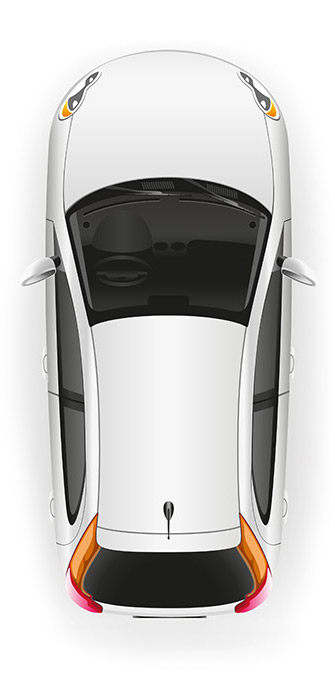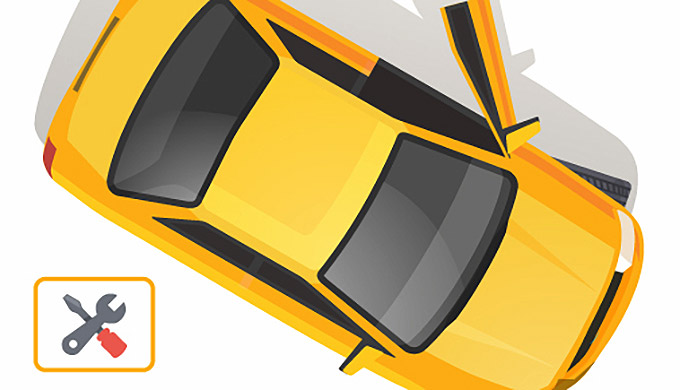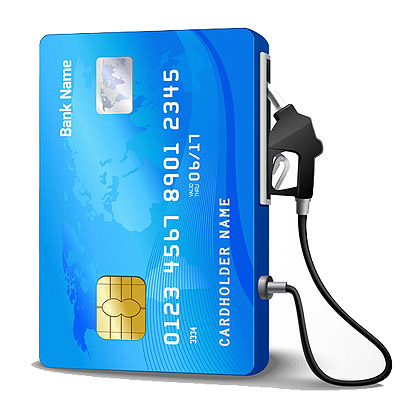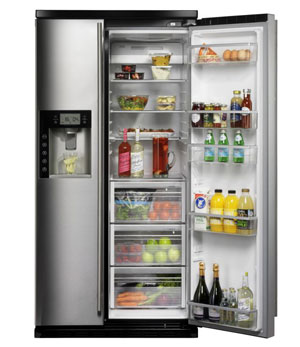
Well, fortunately, there are several things you can do to protect your car, and in this list, we’ll present you with some ways to make sure your car will work perfectly when you return to it. Here is what you need to know…
How Long will the Car be out of Service?

Keep the Fuel Tank Full
Even if the car is being kept in a garage, it is important not to allow water to condense in the fuel tank. If the tank is full, there is a much-reduced possibility of water condensing, but the problem is that most modern gasoline blends contain about 5% methanol, which attracts water in much the same way that brake fluid does.
If the car is going to be out of service for several months, there is a distinct possibility that the methanol and water might separate from the gasoline and collect on the bottom of the tank, which renders the fuel useless. One way to prevent this is to arrange to have the car driven once a week or so to keep the gas mixed up, or to use a stabilizing agent in the fuel to prevent separation of the methanol fraction.
Much the same goes for diesel fuel, but diesel has the added problem that bacteria can grow in both the dissolved and free water in the fuel. Use an anti-bacterial agent in diesel fuel if the vehicle is going to be out of service for more than 30 days.
Keep the Battery Charged
There are two very good reasons why you should not disconnect the battery. First, because you will deactivate the radio, but more importantly because the engine management system (ECU) could lose its entire memory if it is disconnected from the battery for long periods. If this happens, the car effectively dies until the ECU is replaced, or reprogrammed, which is not always possible.
Instead of disconnecting or removing the battery, connect a trickle charger to it to keep it fully charged up. Partially discharged batteries can cause a whole slew of issues and problems, even if the car is switched off, so make sure it does not get the opportunity to run down.
Change the Oil and Oil Filter

Check the Anti-freeze Concentration
If you live in a cold area, make sure you replace the engine coolant with fresh water and anti-freeze to prevent damage due to both rust and freezing temperatures. Even if a vehicle is parked under cover, exceptionally low temperatures can cause the coolant to freeze if the anti-freeze is old or degraded.
Lift the Wheels from the Ground
All tires, especially performance or low profile tires, will develop flat spots if they remain in the same position for long periods. In some cases, the flat spots may work themselves out of the tires with some use, but don’t bank on this. In many cases, the damage is permanent, and the tires are useless as a result.
To prevent this from happening to your tires, support the car with jack stands so that the tires don’t touch the ground.
Remove the Tension from Drive Belts
Slacking off drive belts will not only extend the life of the belts- but it will also prevent damage to the bearings in the alternator, water pump, power steering pump, and even the A/C compressor. Keeping the belts tensioned can cause flat spots in bearings in much the same way that tires will develop flat spots if they remain stationary for long periods.
Don’t Apply the Parking Brake
Leaving the parking brake engaged for long periods will almost certainly cause the pads to rust onto the discs, or the brake linings to weld themselves to the drums. You may be lucky in that the parking brake might release, but it is more likely that you will have to dismantle the brakes to free the mechanism.
Investing in a set of wheel chocks to prevent the vehicle from moving, will save you several hours of hard labour just to get the vehicle moving when you do want to use it after your absence.
Keep Mice & Rats Away
Just why mice and vermin like chewing on electrical wiring is still a mystery, so do everything you can to keep them away from your vehicle. Use some steel or brass pot scourers the plug the tailpipe and air intakes to prevent rats from nesting in your mufflers or air box.
However, avoid placing rat poison cubes in the engine compartment. Rat poison cubes actually attract rats, and even though they eventually die after eating the poison, they might choose to die somewhere in your car where you cannot get at the malodorous remains. If you choose to use poison, be absolutely sure you only use products that cannot cause the secondary poisoning of pets.
The better option is to set baited traps around the vehicle, but if you do this, make arrangements to have the traps checked and cleared out every day to prevent the captured enemies from stinking out your garage.
Maintain Your Insurance
Do not cancel your insurance for the times the vehicle will be out of service because you might find yourself paying higher rates when your insurers notice the gaps in your insurance coverage. Besides, anything can happen; fires, burglaries, and other disasters could leave you seriously out of pocket if your stored vehicle gets damaged for whatever reason, and you have no insurance cover. It may be possible to contact your insurance provider for reduced rates if your car is idle or being used infrequently, for example, if you are not driving to work or only making essential trips. See the end of the article for some insurance notes.
Leave the Windows Partially Open
Of course, you only want to do this if the vehicle is parked in a secure garage, but by leaving the windows partially open, you can largely prevent the growth of molds and fungi, especially in humid climates. Mold growths can destroy a car interior in a matter of weeks, so avoid this happening to you.
Wash and Polish the Bodywork
Airborne pollutants are often extremely acidic, so protect the vehicle by applying a generous coat of wax to prevent corrosion from getting a hold in microscopic scratches and imperfections in the paintwork- even if the car is parked in a garage.
Special COVID 19 – Insurance Notes
Below is a brief summary of a message board thread (redflagdeals linked here) of insurance discounts potentially being offered due to COVID-19 and decreased use of your vehicles.
Desjardin: https://www.desjardinsgeneralinsurance.com/covid-19-en
The Personal: https://www.thepersonal.com/covid-19-en
Allstate: https://www.allstate.ca/webpages/custca … 42020.aspx (Need NOT apply. Automatic 25% refund for one month)
Pembridge: https://www.pembridge.com/ (25% refund of monthly premium. Not sure if one should apply)
Johnson/RSA: “I told them I’m working from home now and my monthly premiums have been reduced by about 30%”
TD: “If you are working from home and driving less than 76 kms / week you can get your premium adjusted with TD Insurance”
CAA: CAA Insurance is offering all of its customers access to CAA MyPace, its pay-as-you-go option. No specific refund yet. Might have to call in for personalized offer.
Intact: providing premium relief — on a case-by-case basis — to recognize changing circumstances for individuals. So, Call In.
L’Unique General Insurance: A rebate of 20% will be applied as of Apr. 1 to clients with a policy covering private passenger and commercial vehicles.
La Capitale: Private passenger and commercial auto insurance clients of La Capitale will be getting a rebate on their premiums — equal to 20% of their monthly premium
Aviva: OPCF/SEF 16 may be applied if vehicle is not in use for minimum 45 days going forward. Payment deferral available on case by case basis.





My battery died again. We jump started it last week and drove very far and then a few days later, it died again haha.
Great post, I never thought to keep the flat spots from tires!
That’s never fun. Had that happen once to our SUV after replacing a battery and it turned out to be the starter. Some places will do free battery testing for you. My mechanic was nice enough to check my car after it died in the winter and gave me the printout with the CCA (cold cranking amps) reading.
Nice read. It is always fun when coming back from a 2-3 weeks vacation in Winter. How am I going to lift the tires off the ground in Montreal Airport Parking?
And I need to Google “Remove the Tension from Drive Belts”. No idea how to remove the tension. Do I give the belts some massage? Haha
And I should go change my Oil and top up the Transmission Fluid. Engine has been weird changing gears recently. Guess it is tired from not going more than a Maxi, Super C, Walmart drive. Lol
Ha, that’s funny. Yeah, you’re probably okay leaving it in the parking lot for a few weeks. I think I thought of this stuff when we had a car sitting in our garage for about 4+ months doing nothing. Personally, I’d rather save myself the trouble and just bring it to the mechanic 🙂